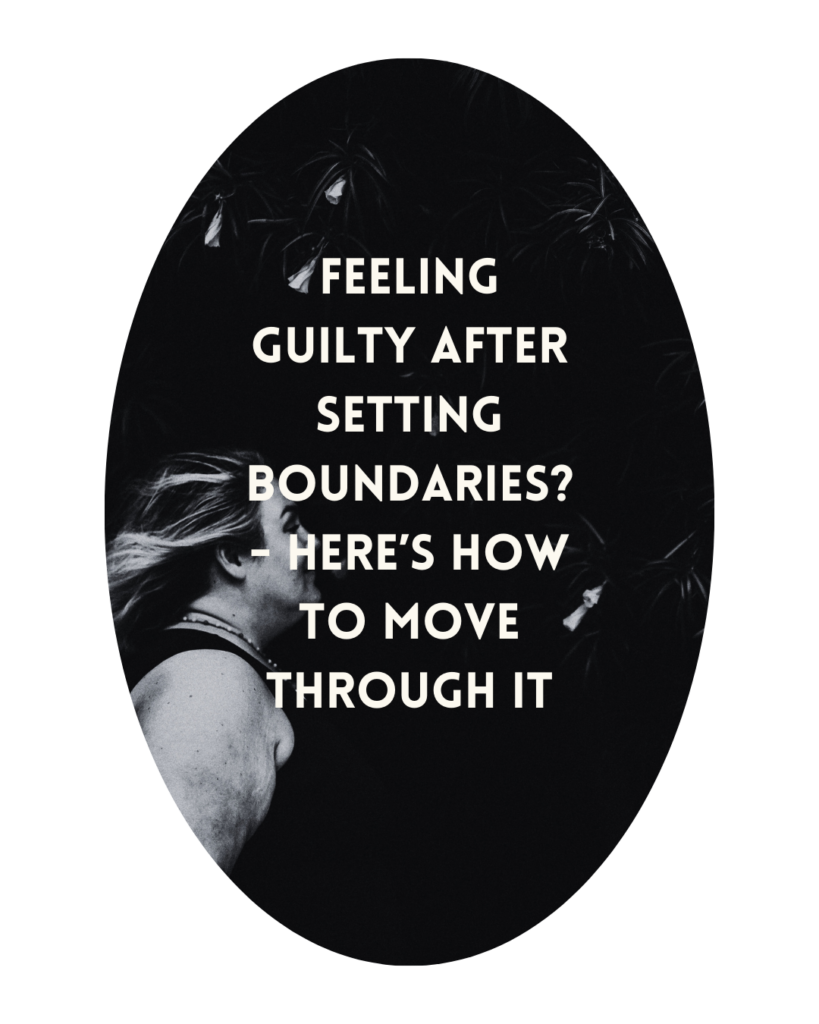© - Content and images in this blog are copyright Elise Besler of EB Voice Empowerment, unless stated otherwise. Feel free to repost or share images for non-commercial purpose, but please make sure to link back to this website and its original post.
℗ - We do not store any information about your visit to our website other than for analytics and optimization for content and reading experience through the use of cookies.
℅ - Our site does at times contain paid advertisements, sponsored content, and/or affiliate links.
Reader Etiquette
I'm your go-to expert for helping to ditch the fear and own your voice. Whether you’re speaking, singing, or setting boundaries, I help you go beyond technique -rewiring your nervous system so full expression feels natural, effortless, and so you.
Hi! I'm Elise Besler - Voice Coach & Somatic practitioner
February 13, 2025

Why Do We Feel Guilty After Setting Boundaries?
Setting boundaries is a powerful act of self-care, yet many people experience guilt and discomfort afterward. Why? Because for many of us, boundaries challenge deeply ingrained nervous system responses tied to safety, connection, and survival.
If you find yourself feeling guilty after setting a boundary, you’re not alone. Guilt is a learned nervous system response, often rooted in early experiences, attachment patterns, and societal conditioning. Your brain perceives boundaries as a potential threat to relationships, triggering stress responses like fight, flight, freeze, or fawn.
The good news? Guilt is not a sign that you did something wrong ~ it’s a signal that your nervous system is protecting you.
Understanding the Root of Boundary Guilt
Guilt after setting boundaries often arises because:
- Your nervous system equates boundaries with rejection or abandonment
- You’ve been conditioned to prioritize external approval over internal safety
- You fear conflict or losing connection with others
- You’ve internalized the belief that saying “no” is selfish
- You feel responsible for regulating others’ emotions
But here’s the truth: Boundaries are acts of self-preservation, not acts of harm. They help create relationships built on mutual respect rather than obligation or resentment.
How to Move Through Guilt After Setting Boundaries
1. Acknowledge the Nervous System’s Role
Guilt is often a nervous system response to perceived disconnection. Instead of pushing it away, recognize it as a sign that your body is adjusting to a new, healthier way of relating.

2. Reframe Boundaries as Acts of Safety, Not Rejection
Your nervous system needs safety, not shame. Boundaries protect your energy and emotional well-being, creating stability in relationships rather than severing them.

3. Separate Perceived Threats from Reality
Guilt tricks your brain into believing you’ve done something harmful. But setting boundaries does not make you unkind or selfish.

4. Regulate Your Nervous System
Guilt can activate fight-flight-freeze-fawn responses, making it harder to hold firm in your boundaries. Nervous system regulation can help you feel safer in your decisions.

- Take slow, deep breaths to signal safety to your body.
- Place a hand on your heart and say, “I am allowed to take up space.”
- Engage in somatic grounding (pressing your feet into the floor, gentle stretching, or shaking off tension).
5. Recognize Manipulative or Conditioned Responses from Others
Sometimes, guilt is triggered by external reactions, especially from those who benefited from your lack of boundaries.

- Guilt-tripping (“I guess you don’t care about me anymore.”)
- Blame-shifting (“You’re making everything difficult now.”)
- Silent treatment or withdrawal
Their discomfort is not your responsibility. People who genuinely respect you will also respect your boundaries.
6. Affirm Your Right to Boundaries
Affirmations reprogram your nervous system and reinforce your commitment to self-respect.

- “I am allowed to honor my needs without guilt.”
- “My boundaries are acts of self-love, not selfishness.”
- “I am safe to prioritize my well-being.”
The Long-Term Benefits of Holding Boundaries Without Guilt
When you set boundaries without guilt overriding your decisions, you will: 




The discomfort of guilt is temporary, but the self-trust you gain is lifelong.
Final Thoughts
Feeling guilty after setting boundaries is normal, but it’s also a sign of healing. Your nervous system is adapting to a new reality where you are allowed to take up space.

— If you’ve ever struggled to speak up, felt your voice shake in high-stakes moments, or questioned if your words truly mattered, this practice is for you! —
Click HERE for immediate access to the FREE “Find Your Voice” Guided Audio Training.
Take 11 minutes to activate the power of your voice with this guided practice. Includes: Grounding, breath-work and voice-work exercises to help you regulate your nervous system and build a confident voice.

Leave a Reply Cancel reply
Grab
THE "Find YOUR VOICE" AUDIO TRAINING
Welcome, Friend! Around here, we believe that embodiment is sacred, and that every voice deserves to take up space.
This is a space rooted in anti-racism, body liberation, queer-affirming practices, and a commitment to trauma-aware, nervous system-informed growth.